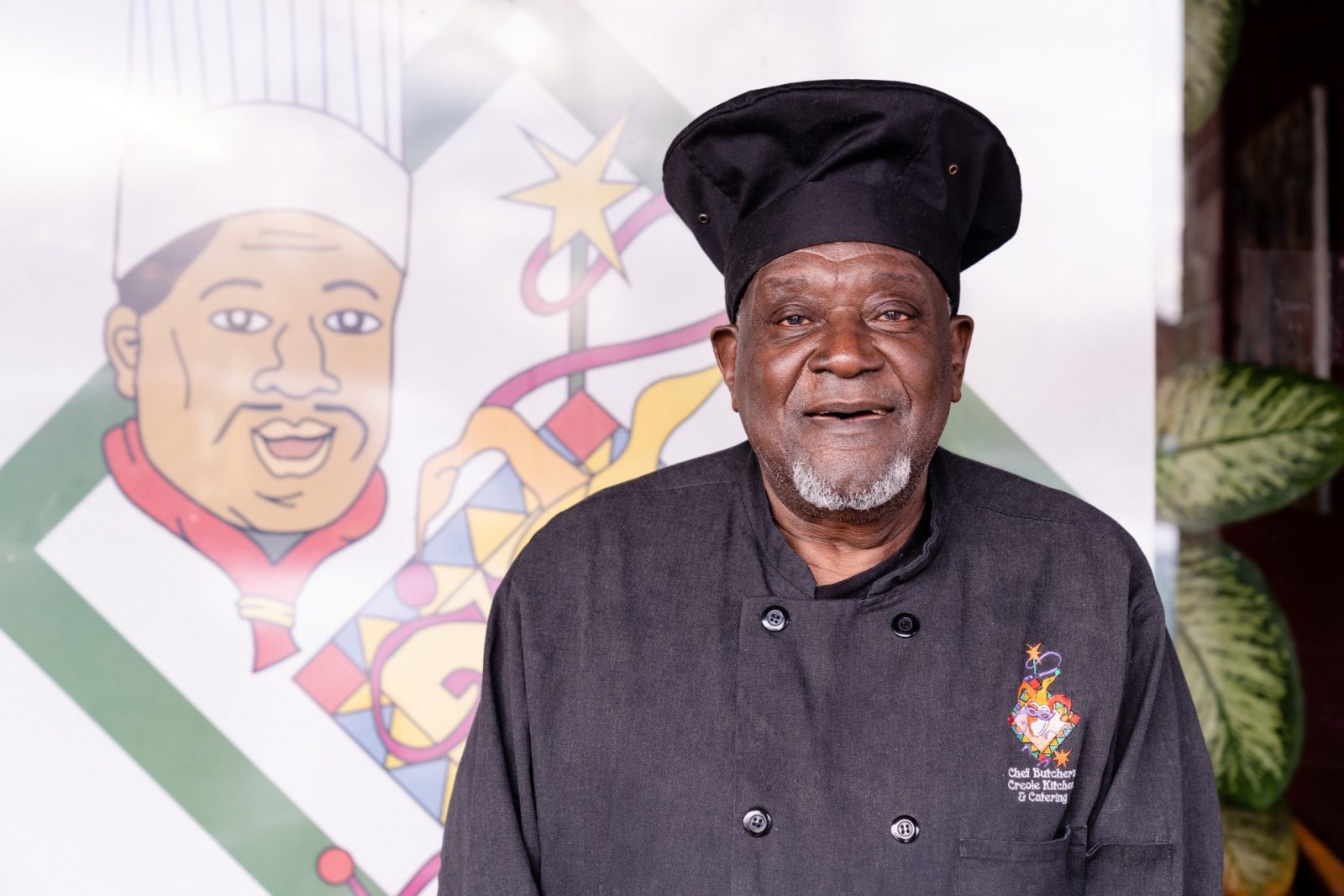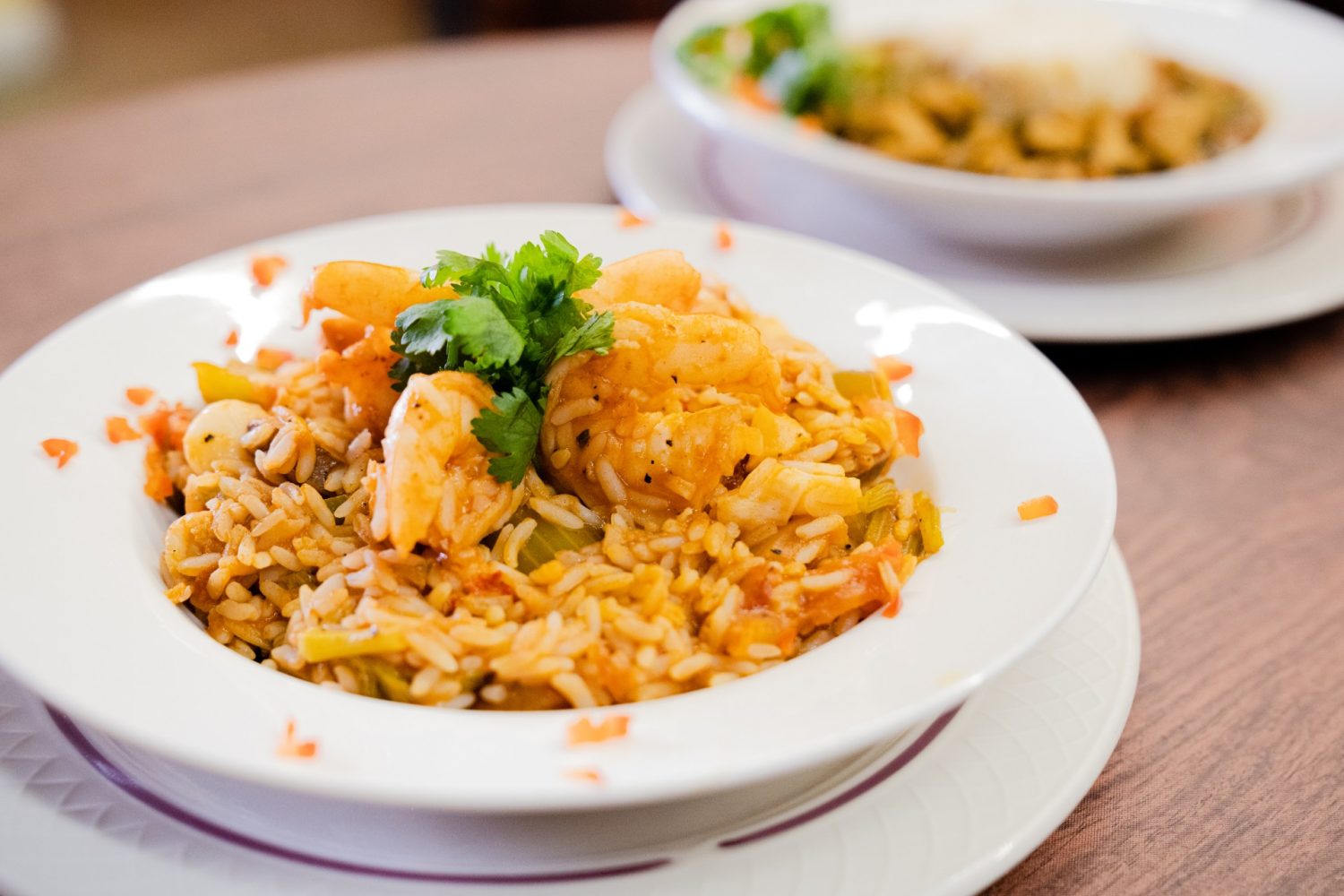How one chef and restaurant help carry the torch for historic Black-owned businesses in the King-Lincoln Bronzeville neighborhood

A Haitian descendent and Louisiana transplant, Creole Kitchen founder Henry Butcher Sr. aspired to trace his southern roots through cooking when he first opened his restaurant in February 2006 in the heart of King-Lincoln Bronzeville. Ever since, the eatery has long been cherished for its multigenerational hospitality and ability to capture the spicy heart and soul of traditional Creole fare.
Born in Shreveport, Louisiana before moving to the Hilltop area of Columbus in 1959 as a teenager, Butcher’s early years were often spent capturing his family’s culinary heritage in the kitchen. Through his unique perspective on cooking, he recalls his family’s numerous Creole dishes.
“My family were farmers; we grew our own vegetables and raised the chickens and pigs that were going to be eaten. My grandmother—who kept me tied to her apron strings while in the kitchen—is where I learned how to make roux, peel shrimp and descaled many types of fish,” Butcher said. “One of my favorite recipes that I took from her is red beans and rice, because the flavor that she gave it was like no other. It gave me that love of cooking.”
BROUGHT TO YOU BY
While Butcher was always motivated to spread Creole cuisine, the first 40 years of his career were spent as a chef in central Ohio establishments including Tony’s Italian Ristorante in the Brewery District and the now-defunct Ollie’s Grandview Inn. Although Butcher cooked Italian and modern American cuisine, he repurposed menu recipes with a homegrown Louisiana flair, much to the enjoyment of his fellow chefs.
“At 16, I worked in my very first restaurant named Florentine Restaurant located on West Broad Street, where I washed the dishes and cleaned all the equipment. Chef Florentine—who came from Italy and spoke very broken English—always made marinara sauce and I would always love to taste the sauce and then go home and try to duplicate it,” Butcher said. “One day we were talking and I told him that I could make that sauce. I made it, he tasted it and told me that I was no longer a dishwasher, [but] a prep cook.”
As there were few local Creole restaurants in Butcher’s youth, he tested out dishes at Michael Oliver’s in the Delaware Hotel, from spicy and flavorful jambalayas, to gumbos and etouffee. The legacy of Butcher’s original dishes continue to thrive at Creole Kitchen, with the restaurant’s signature jambalayas with seafood and chicken to thickened, savory gumbo.

As food enthusiasts turn to heartier, warming dishes in the winter months, Butcher relies on one essential ingredient for the perfect gumbo.
“It would definitely be the roux, which I learned from my grandmother, that gives it that earthly flavor. If the roux is not right, then it’s not right,” he said.
Creole Kitchen also boasts its own line of in-house seasonings, from gumbo powder to shellfish boil, all of which make the restaurant a staple in the historically Black neighborhood of King Lincoln-Bronzeville. Once a popular hub for Black-owned businesses from the Macon Hotel and Pythian Theater in the early to mid-20th century, the neighborhood’s vibrancy lives on through continuing family-run businesses like Creole Kitchen.
“Bronzeville has a rich history of African-American people. Back in the day, it thrived off African-American businesses from dry cleaners, restaurants, churches and theaters,” Butcher said. “It was a very jazzy area and can be again, which is our style.”
If you like this, read: Creole 2 Geaux to move into East Market at Trolley District
BROUGHT TO YOU BY




